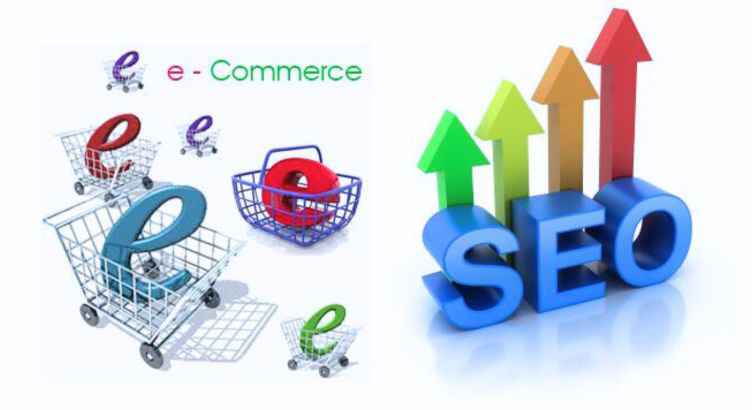In the vast digital landscape, where numerous online stores compete for attention, having a robust Ecommerce SEO strategy is crucial for success. As more consumers turn to online shopping, optimizing your Ecommerce website becomes the key to standing out in the crowd and driving sales. This article will explore Ecommerce SEO, essential strategies, and tips to enhance your online store’s visibility and attract potential customers.
Understanding the Basics of Ecommerce SEO
Keyword Research
Researching keywords thoroughly is the first step in developing an effective Ecommerce SEO strategy . Find out what people are searching for when they want a product like yours. If you want to find keywords that are both relevant and have a low level of competition, you can use tools like SEMrush and Google’s Keyword Planner.
On-Page Optimization
Optimizing your product pages is crucial for search engine visibility. Ensure your product titles, descriptions, and meta tags include relevant keywords. Good product photography and detailed descriptions both contribute to a better user experience. Additionally, create SEO-friendly URLs that are both user-friendly and descriptive.
Mobile Optimization
Mobile optimization is non-negotiable with the increasing use of smartphones for online shopping. Ensure your Ecommerce site is responsive and offers a seamless experience across various devices. Search engine optimization (SEO) success hinges on having a mobile-friendly website because Google gives such sites more weight in search results.

Technical SEO for Ecommerce
Site Speed
In terms of both user experience and search rankings, page load speed is critical. Optimize images, leverage browser caching, and minimize HTTP requests to improve your site’s speed. Google’s PageSpeed Insights can help you identify and address speed-related issues.
XML Sitemap
Make an XML sitemap to show search engines how your site is structured. Putting the sitemap in Google Search Console can help search engines index and crawl your online store more efficiently.
Secure Website (HTTPS)
A secure website is essential for customer trust and affects your search rankings. Google considers HTTPS a ranking factor, so ensure your Ecommerce site is protected by obtaining an SSL certificate.
Off-Page SEO and Link Building
Quality Backlinks
Acquire relevant, high-quality backlinks from authoritative websites to strengthen your backlink profile. Guest blogging, influencer collaborations, and partnerships are effective ways to earn valuable backlinks that enhance your Ecommerce SEO.
Social Media Integration
Integrate your Ecommerce site with social media platforms to expand your online presence. Participate in social media conversations, inform followers about new products, and promote user-generated content. Social signals contribute to search engine rankings.
Local SEO for Ecommerce Stores
- Local Keyword Optimization: Target local keywords in your product descriptions, meta tags, and URLs to attract customers searching for products in specific geographic areas.
- Google My Business Optimization: Get more people to see your Google My Business listing in local search results by claiming it and updating it with accurate information, photos, and reviews.
- Local Backlink Building: Your site’s authority in local search will increase as you cultivate partnerships with local organizations and businesses to acquire backlinks from their websites.
Video SEO for Ecommerce Websites
- Product Demonstration Videos: Create engaging and informative videos showcasing your products, optimizing titles, descriptions, and tags with relevant keywords.
- YouTube Channel Optimization: Optimize your YouTube channel with a compelling description, branded visuals, and a consistent uploading schedule to attract subscribers and improve video rankings.
- Video Schema Markup: Video schema markup can improve your website’s visibility in search results and video-rich snippets by making your videos more accessible for search engines to comprehend and crawl.
Leveraging Content Marketing for Ecommerce SEO
Blogging for Ecommerce Success
Use your e-commerce site’s blog to post interesting and helpful information regularly. Blog posts provide value to your audience and offer opportunities to incorporate relevant keywords naturally. Share industry insights, product guides, and customer success stories to establish your brand as an authority in your niche.
Product Reviews and User-Generated Content
Get people talking about your items by asking them to write reviews. Potential customers are swayed by the credibility and trustworthiness fostered by positive evaluations. Additionally, user-generated content, such as photos and testimonials, can be valuable assets for your Ecommerce SEO. Incorporate these elements strategically throughout your site to enhance its SEO performance.

Analytics and Continuous Improvement
Monitoring and Analyzing Performance
Regularly monitor your Ecommerce site’s performance using analytics tools like Google Analytics. Maintain tabs on vital statistics, including site visitors, conversion percentages, and bounce rates. By analyzing this data, you may learn much about user behavior and where your SEO approach needs to catch up.
A/B Testing for Optimization
Implement A/B testing for various elements on your site, such as call-to-action buttons, product descriptions, and images. You can find out what your audience loves most by trying several versions. To keep your Ecommerce SEO performance high and keep it from dropping, you need to optimize continuously based on A/B test results.
FAQ’s
1. What is Ecommerce SEO, and why is it essential for online stores?
Search Engine Optimization (SEO) for online retailers, or ecommerce, is tweaking different parts of your site to make it appear higher in SERPs. Greater exposure means more organic traffic and sales, so it’s vital for online retailers.
2. How can I conduct adequate keyword research for my Ecommerce website?
Search engine optimization (SEO) tools like SEMrush and Google’s Keyword Planner can help you find low-competition, highly relevant keywords. Pay close attention to terms pertinent to your items and the search habits of your target audience.
3. What role does mobile optimization play in Ecommerce SEO?
Google places a premium on mobile optimization for online stores. Google favors mobile-friendly websites due to the increasing number of online consumers. Ensure your online store works well on all devices by making it responsive.

4. How can I improve my e-commerce site’s backlink profile?
Building a solid backlink profile involves earning high-quality, relevant backlinks from reputable websites. Consider guest blogging, influencer collaborations, and forming partnerships. Quality backlinks contribute to your site’s authority and search engine rankings.
5. Is social media important for Ecommerce SEO?
Search engine optimization for online stores must include social media integration. Use social media sites like Twitter, Instagram, and Facebook to interact with your followers. A search engine’s ranking is positively affected by social signals, which include likes and shares.
6. How does content marketing fit into the SEO strategy for e-commerce?
Content marketing is integral to Ecommerce SEO. Create a blog on your site to publish informative and engaging content. Regularly updating your site with relevant content helps improve search rankings and establishes your brand as an authority in your industry.
7. How can analytics help improve Ecommerce SEO performance?
Analytics like Google Analytics can provide valuable insights into your Ecommerce site’s performance. Monitor metrics like traffic, conversion, and bounce rates to understand user behavior. Continuous analysis allows you to make data-driven decisions for ongoing optimization and improvement.
If you want your online business to succeed in the cutthroat world of e-commerce, you need a practical Ecommerce SEO approach . Everything works together to boost your online exposure, from in-depth keyword analysis and on-page optimization to off-page tactics and technical SEO. Follow these best practices to rank higher in search results and give your consumers a fantastic experience.
SEO is a continual process; tracking industry trends and algorithm modifications is essential for long-term success. Get to know your online store’s ins and outs as you start your Ecommerce SEO adventure. Take the next step toward optimizing your Ecommerce success by analyzing elatre.com for further insights and expert help.
Explore the possibilities with elatre.com and elevate your Ecommerce SEO game today!



